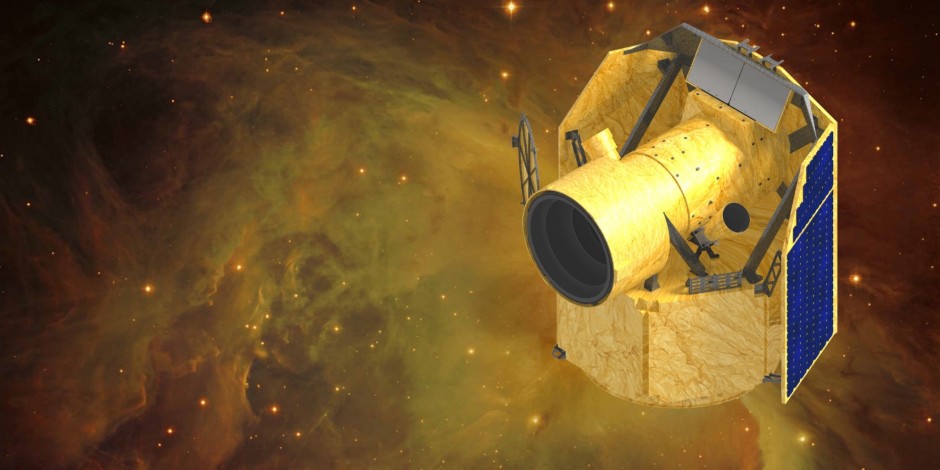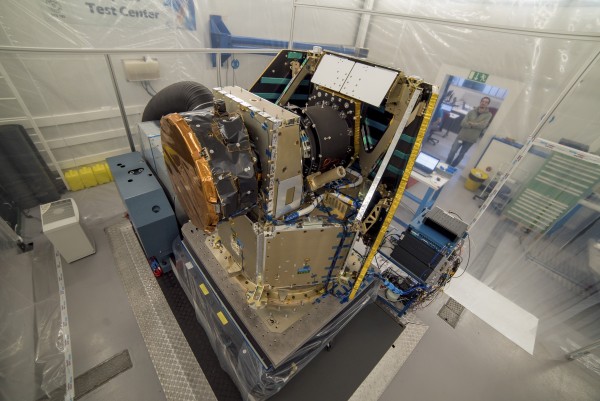Launching the CHEOPS fellow program

The main science goals of the CHaracterizing ExoPlanets Satellite (CHEOPS) will be to study the structure of exoplanets with radii typically ranging from 1 to 6 REarth orbiting bright stars. It is this last characteristic that makes CHEOPS unique when compared to its two predecessor COROT and Kepler.
With an accurate knowledge of masses and radii for an unprecedented number of planets, CHEOPS will set new constraints on the structure and hence on the formation and evolution of planets in this range. The satellite is a joint mission between ESA and Switzerland to be launched in 2017/2018. ESA’s Science Programme has selected CHEOPS in 2012 as its first small mission (S-mission), and subsequently adopted it in 2014.

The CHEOPS Structural and Thermal Model (STM) during vibration tests at RUAG Space in Zurich. (Image RUAG)
One of the key goals of the NCCR PlanetS, through its dedicated CHEOPS platform, is to provide the organization and the funding for a Swiss high-visibility science exploitation of the mission. As part of this effort, since summer 2015 PlanetS has been funding two PhD students and now launches the CHEOPS fellow program. Therefore, the CHEOPS platform of PlanetS is looking for two young talented postdocs working in any field related to the science of CHEOPS.
In particular, CHEOPS will:
- Determine the mass-radius relation in a planetary mass range (between the Earth’s and Neptune’s mass) for which only a handful of data exist.
- Identify planets with significant atmospheres as a function of their mass, distance to their parent star, and stellar parameters. The presence (or absence) of large gaseous envelopes bears directly on fundamental issues such as rapid gas accretion or the loss of primordial H-He atmospheres.
- Probe the atmosphere of known Hot Jupiter in order to study the physical mechanisms and efficiency of the energy transport from the dayside to the night side of the planet.
- Provide unique targets for future ground- (e.g. E-ELT) and space-based (e.g. JWST) facilities with spectroscopic capabilities. With well-determined radii and masses, the CHEOPS planets will constitute the best target samples within the solar neighbourhood for such future studies.
- Offer 20% of open time to the community to be allocated through competitive scientific review.
The CHEOPS fellows will be offered funding for three years (with the possibility of an additional fourth year) in order to develop their research in the PlanetS framework, and a dedicated research budget. Additional positions will be offered during the course of the NCCR. In order to foster interactions between NCCR nodes, these young scientists are expected to work with at least two institutes parts of PlanetS.
The applications for these first two positions are to be received until 15. January 2016, and will be reviewed during spring 2016, for an expected start in summer 2016.
More details can be found on: 2 CHEOPS Fellows (postdoctoral positions) in Swiss-wide exoplanet network
Categories: External Newsletter
